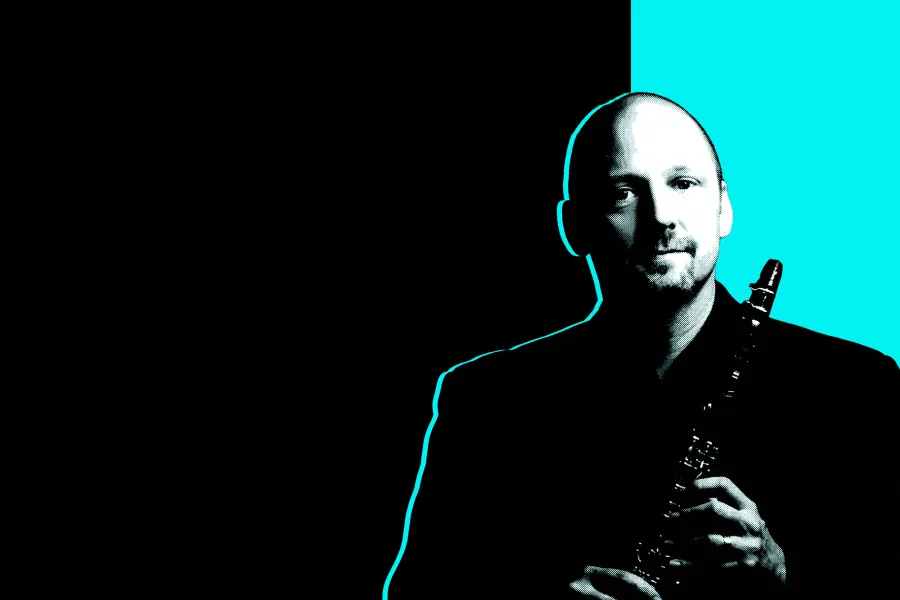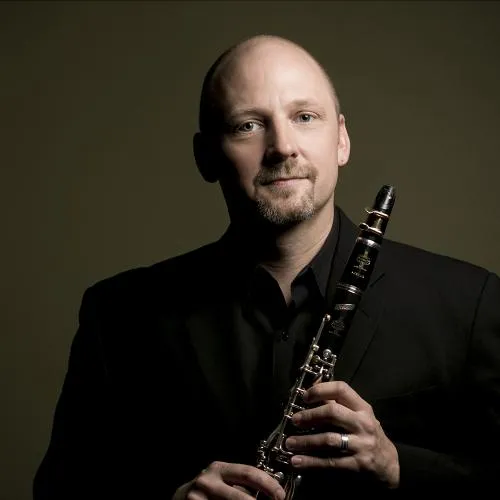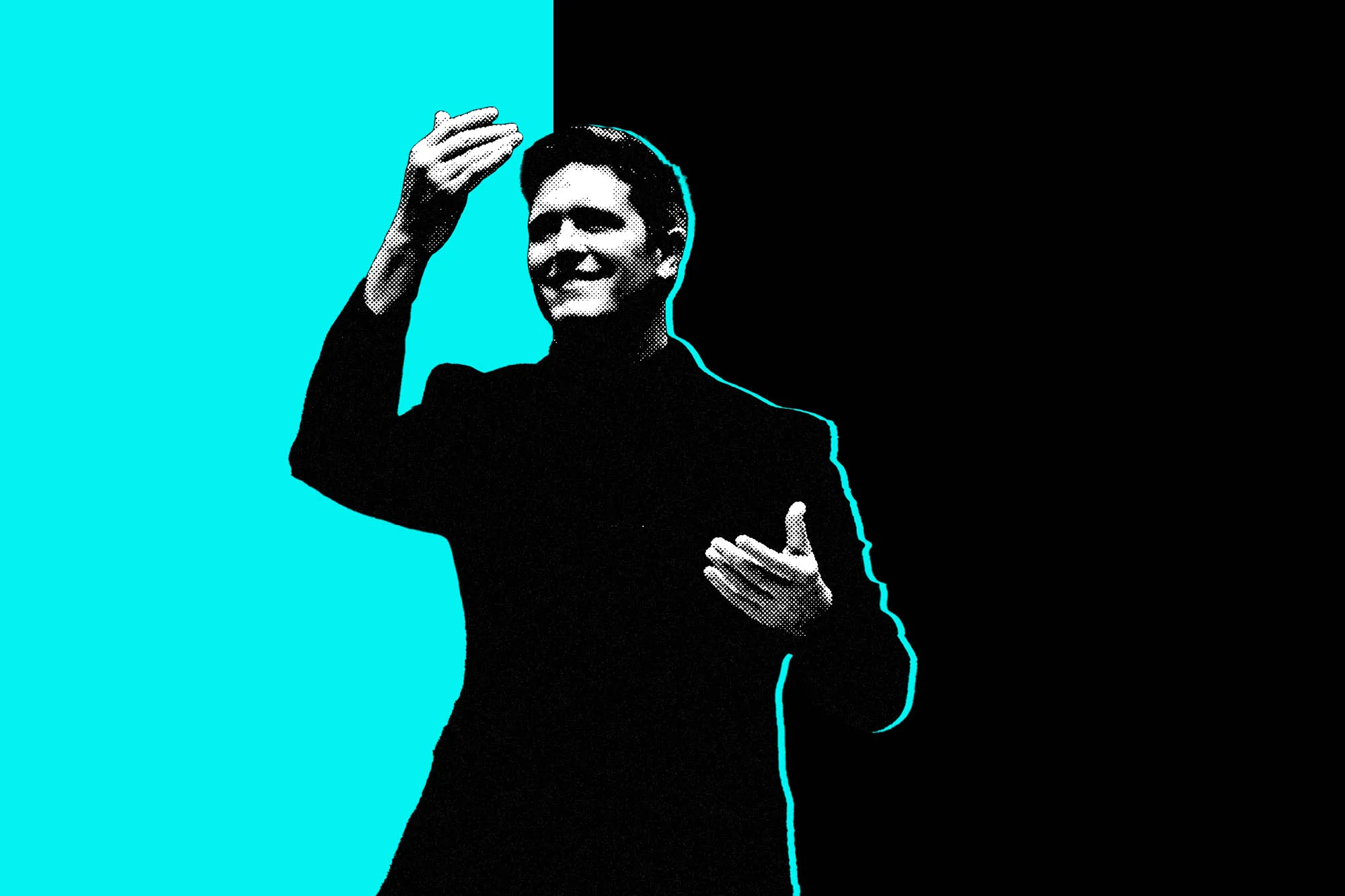
Farkhad Khudyev, conductor
Jonathan Gunn, clarinet
Featured Guests Austin Youth Orchestra
This concert will last about 75 minutes with one intermission.
Please silence your electronic devices.
Photography, video, or recording of any part of this performance is prohibited
Program
Guiseppi Verdi
Overture to La Forza del Destino
Featuring strings from Austin Youth Orchestra
Richard Strauss
Romanze, E-Flat Major, TrV 80
Jonathan Gunn, clarinet
Eldar Hudiyev
arr. Khudyev
Circus, for Clarinet and Orchestra.
Jonathan Gunn, clarinet
intermission
Ludwig van Beethoven
Symphony No. 5 in C Minor, op.67
Allegro con brio
Andante con moto
Allegro
Allegro
About the Program
Giuseppe Verdi
Overture to La forza del destino
Born October 8, 1813, Roncole, Italy
Died January 27, 1901, Milan, Italy
Composed 1869
Premiered February 27, 1869, La Scala, Milan
Duration 8 minutes
Giuseppe Verdi was an Italian opera composer. The first performance of his opera La forza del destino was given at the Imperial Theater in Saint Petersburg on November 10, 1862, but Verdi revised the opera significantly in 1869. Based on the Spanish play Don Álvaro written in 1835 by Ángel de Saavedra y Ramírez de Banquedano, Duke of Rivas (1791–1865) with an added scene borrowed from the 1799 Wallenstein’s Camp by Freidrich Schiller (1759–1805), the opera begins with star-crossed lovers Leonora and Alvaro planning to elope. When Leonora’s father discovers their plans, Alvaro accidentally kills him while attempting to lay down his pistol. The tragedy continues as Leonora’s brother attempts to avenge his father but instead is mortally wounded by Alvaro and then kills his own sister for her role in their father’s death. The original version of the opera featured a concise and subdued prelude, which Verdi expanded greatly to include a potpourri of many of the melodies from the opera. These include a three-note motive associated with “fate” and a rising, four-note scale associated with Leonora. The overture powerfully evokes the atmosphere of the dramatic opera, serving equally well as a tantalizing introduction to the tragedy or as a stand-alone orchestra piece.
—Penny Brandt
Richard Strauss
Romanze for Clarinet & Orchestra
Born June 11, 1864, Munich, Germany
Died September 8, 1949, Garmisch-Partenkirchen, Germany
Composed 1879
Duration 9 minutes
Richard Strauss was born into a musical family. His father, Franz Strauss—an exceptional horn player and composer, and notable anti-Wagnerian—served as both mentor and teacher to his son, who had shown much promise at an early age. By the time Richard was 6, he was already composing, and as a teenager he had developed a performance career as both pianist and violinist. His father also promoted Richard’s compositional work by way of public performances, often programming his compositions for Wilde Gung'l, the amateur orchestra Franz conducted. In 1874, the ten year old Richard heard his first Wagner operas: Lohengrin and Tannhäuser, and his life was changed. Four years later, he heard Die Walküre and Siegfried in Munich, and in less than a year after that, he attended performances of Wagner’s complete Ring Cycle, Die Meistersinger von Nürnberg, and Tristan und Isolde. It was in that same year of 1879 that the 16 year old Richard composed his first concert piece for soloist and orchestra: his Romanze. He composed it for a fellow student, and, pleased with himself, wrote a letter back home, saying “'I have been very industrious—maybe I have told you already—composing a romance in E-flat major for clarinet and orchestra, which has turned out quite well; the continuous theme turns after the cantilena into a 6-part orchestral fugato.” Despite his contemporaneous obsession with Wagner, the work sounds much more akin to the likes of Mendelssohn or Schumann: a testament to the influence his father’s teachings still had on the teenager who would continue to compose music for another 60 years.
—Mark Bilyeu
Eldar Hudiyev
Circus, Concerto for Clarinet & Orchestra
Composted 2024
Acknowledged by the US government as an “Artist of Extraordinary Ability”, Eldar Hudiyev is an international award-winning composer, music competition judge, violinist, and pedagogue. His recent composing awards include: “Best Original Song” award at the 8 and Halfilm Awards Film Festival, held in Rome, Italy 2023; “Best Music Video” award at the Hollywood on the Tiber Film Awards festival 2023, “Best Original Composition” at the Chainsaw Game and Music Festival, USA 2021; First Prize at the International Music Composition Competition, Atlanta, GA 2021; Second Prize at the Red Maple Music Competition, Toronto, Canada 2021. As a violinist, Eldar has performed in major international concert venues such as Carnegie Hall, Davies Hall, Tchaikovsky Hall to name a few. He holds Master Degree in Violin Performance from the Boston Conservatory of Music at Berklee. Eldar lives in the United States and is originally from the capital of Turkmenistan, Ashgabat city. Hudiyev writes:
Circus is joy and sorrow, laughter and drama, courage and beauty, humor and skill, superficiality and depth. Composed in 2024, the piece represents memories of my happy childhood, as well as internal sensations of the reality of today's changing world. The orchestration of “Circus” was done by Farkhad Khudyev, which beautifully represents my idea through the solo clarinet and the wide range of orchestral colors.
Ludwig van Beethoven
Symphony No. 5 in C Minor, Op. 67
Born December 16, 1770, Bonn, Germany
Died March 26, 1827, Vienna, Austria.
Composed 1804-1808
Premiered December 22, 1808, Theatre an der Wien, Vienna Austria
Duration 33 minutes
Just days before Christmas in 1808, Vienna’s Theater an der Wien hosted a benefit concert. The concert hall was sold out, and a good thing: because the heating was not working properly, and the warmth of other concert-goers was imperative as they watched Ludwig van Beethoven conduct a four-hour long concert which consisted entirely of premieres of his own music. On the program? movements of his Mass in C Major, a concert aria, his fourth piano concerto (featuring Beethoven as soloist), his sixth symphony, a piano improvisation, the Choral Fantasy, and his fifth symphony. There was only one intermission. There was also only one rehearsal, which resulted in a very long, very cold, and very poorly executed concert (at one point, during the Choral Fantasy, Beethoven had to stop the orchestra and re-start the work). The second half opened with his fifth symphony, beginning with four of the most recognizable notes in all of music history. Volumes have been written on this short-short-short-long motive. After Beethoven’s death, his secretary, Anton Schindler, wrote “The composer himself provided the key to these depths when one day, in this author's presence, he pointed to the beginning of the first movement and expressed in these words the fundamental idea of his work: ‘Thus Fate knocks at the door!’” This is why the symphony is often given the moniker of Schicksalssinfonie (“Fate Symphony”), despite this story being uncorroborated. We hear this rhythmic motive in nearly every measure of the first movement, and throughout the other three movements in variation. The writer E.T.A. Hoffman, present at the premiere, wrote (perhaps too effusively to be taken seriously) “How this wonderful composition, in a climax that climbs on and on, leads the listener imperiously forward into the spirit world of the infinite!... No doubt the whole rushes like an ingenious rhapsody past many a man, but the soul of each thoughtful listener is assuredly stirred, deeply and intimately, by a feeling that is none other than that unutterable portentous longing, and until the final chord—indeed, even in the moments that follow it—he will be powerless to step out of that wondrous spirit realm where grief and joy embrace him in the form of sound.” Beethoven’s Fifth is an iconic work. It was programmed for the inaugural concert of the New York Philharmonic in 1842, it was used by the BBC during WWII broadcasts, and in 1977, NASA included it on its Golden Record, sent into space on Voyager, to convey the life and culture of planet Earth to any intelligent beings who might encounter it.
—Mark Bilyeu
About the Artists
Jonathan Gunn

Clarinetist Jonathan Gunn is a versatile artist with a varied career as educator, soloist, chamber musician, and orchestral performer. He was associate principal and E-flat Clarinet of the Cincinnati Symphony Orchestra from 2004 to 2011, and served as principal until 2016. Gunn has also performed as guest principal clarinet with the Chicago Symphony Orchestra and Houston Grand Opera as well as a guest with the New York Philharmonic and Pittsburgh Symphony. Gunn has performed at music festivals including Tanglewood, Aspen, St. Bart’s, Sunflower, and Buzzard’s Bay. As a soloist, he has appeared with the Cincinnati Pops Orchestra, the Fort Wayne Philharmonic, and around the world. Recently, he recorded the Corigliano Clarinet Concerto with The University of Texas Wind Ensemble for Reference Recordings. Mr. Gunn gives masterclasses and recitals internationally, and has served on the faculties of the Buffet-Crampon Summer Academy, the Aria International Summer Academy, the National Youth Orchestra of the USA and Round Top Music Festival. Gunn is a D’Addario Artist and Musician Advisor, and a Buffet Group USA Performing Artist. jonathangunnclarinet.com
Farkhad Khudyev
Farkhad Khudyev is the winner of the Gold Medal “Beethoven 250” at the 1st International Arthur Nikisch Conducting Competition; the Solti Foundation US 2018 and 2022 Career Assistance Award; the Best Interpretation Prize at the 1st International Taipei Conducting Competition; the 3rd prize at the 8th International Sir Georg Solti Conducting Competition; and the Gold Medal/Grand Prize at the 2007 National Fischoff Competition. Khudyev has worked with orchestras worldwide including the London Philharmonic Orchestra, Frankfurt Radio Symphony Orchestra, Frankfurt Opera Orchestra, Danish National Symphony Orchestra, Seattle Symphony, Dallas Symphony, Los Angeles Philharmonic, San Diego Symphony, Monterey Symphony, George Enescu Philharmonic Orchestra, Xi’an Symphony Orchestra and the State Taipei Chinese Orchestra. Farkhad was born in Turkmenistan, where he studied at the State Music School for gifted musicians, and then completed his studies at Interlochen Arts Academy, Oberlin Conservatory and Yale University. Khudyev serves as the Music Director of the University of Texas Symphony Orchestra in Austin, and the Orchestral Institute at the Hidden Valley Institute of the Arts in Carmel, California.
Symphony Orchestra
Violin I
Yida An, concertmaster
Margaret King
Chloe Yofan
Yusong Zhao
Mei Liu
Thomas Gougeon
Emma Thackeray
Evelyn Lee
Wells Gjerlow
Jackie Shim
Georgia Halverson
Violin II
Han Na Lee, principal
Emmanuelle Sievers
Mia Zajicek
Zichuan Wang
Cade Carter
Suhyun Lim
Kai Lindsey
Ivan Arras Morales
Noah Briones
Alice Pak
Suhaas Patil
Seva Joshi
Viola
Ying-Chen Chen, principal
Emily Whitney
Sheng-Chieh Lan
Kendall Weaver
Cecilia Nguyen
Nelle Joung
Gwanji Lee
Cello
Javy Liu, principal
William Han
Nicole Parker
Kastuaki Arakawa
Aili Kangasniemi
Je-Shiuan Hsu
Tsz To Wong
Rey Canales
Madison Garrett
Xinke Fu
Mika Syms
Melody Lihou
William Pu
Yochen Zhong
Double Bass
Tony Sanfilippo, principal
Gonzalo Kochi Kikuchi
Lucas Scott
Xingchang Ye
Mirabai Weatherford
Will Penn
Sulayman Bowles
Kaitlyn Ruiter
Rosemarjin Van De Lint
Shiying Feng
Flute
Margaret Chvatal1,3
Riley Bender4
Michelle Cheng
Oboe
Rachel Marquez1,3
Ryan Hirokawa2,4
Clarinet
Alexander Vaquerizo1
Jacob Bricker4
Bassoon
Thomas Klink1,2
Wesley Booker3
Isabella Perez4
Horn
Madeline Artman
Chia-Ling
Jonah Hammett
Cheryll Huddleston
Jenny Wu
Trumpet
Guillem Torro Senent1,3
William Paladino4
Trombone
Brandon Reyes1
Arsene Bien-Aime4
Jackson Quevedo
Tuba
Tyler Lane
Timpani
Kaiwen Luo
Percussion
Seth Underwood
Caroline Richards
Harp
Tate Ahmann
Bethany Tran
PRINCIPALS
1. Verdi
2. Strauss
3. Hudiyev
4. Beethoven
Austin Youth Orchestra
Violin I
Lerchen Zhong
Imogen Hendrickse
Dylan Zhong
Sam Shea
Jianna Chun
Edward Lee
Lilah Bounds
Hazel Barksdale
Nicole Kim
Iris Martinez
Divya Jaganathan
Odelia Xiao
Rayna Ghelani
Nehemiah Chow
Violin II
Allyson Chu
Vivek Jallepalli
Ethan Cheng
Jacob Chi
Jason Li
Edith Carlson
Haohan Zang
Kate Talley
Calvin Hodge
Anya Weintraub
Alex Meyers
Grace Stoddard
Stella Smits
Divya Chatty
Viola
Alexander Zhong
Finn Perez
Daniel Yang
Franklin Fang
Peyton Lauv
Noah Facundo
Avery Legaspi
Emily Lam
Elyse Daniels
Chris Keating
Jusuf Rivai
Alyssa Wang
Carson Kellams
Julia Lyle
Cello
Lydie Scott
Ryan Chong
Samuel Lee
Ivana Hsu
Hugh Choi
Mia Chang
Charlie May
Hudson Lemmon
Duoyi Liang
Michelle Huang
Margaret Ellen Jackson
Taylor Cordill
Yujin Son
Elizabeth Herrera
Double Bass
Aidan MacDonald
Isabelle (Ridge) DiCarlo
Enid Hanson-Kickertz
Sam Kruck
Upcoming Events

Our annual holiday concert returns this year, but expanded!
Our Combined Choirs and Wind Ensemble will anchor the program, but this year they will be joined by other Butler School ensembles and soloists; a collage of sounds for the holiday season!
Saturday, December 7, 7:30 p.m.
Sunday ,December 8, 4:00 p.m.
Bates Recital Hall
Miró Quartet
Monday, October 28, 7:30 p.m.
Bates Recital Hall
University Orchestra
Tuesday, November 19, 7:30 p.m.
Bates Recital Hall
Symphony Orchestra
Monday, December 9, 7:30 p.m.
Bates Recital Hall
Miró Quartet
Friday, January 24, 7:30 p.m.
Bates Recital Hall
Symphony Orchestra
Featuring Ebonee Thomas, flute
Friday, February 7, 7:30 p.m.
Bates Recital Hall
Event Details
$5–15
All University of Texas at Austin students are allowed one free ticket as long as they are available. Student tickets must be picked up at the Box Office with valid student I.D. Seating is unassigned.
If you are a patron with ADA needs, please email tickets@mail.music.utexas.edu and we will reserve ADA seating for you.

